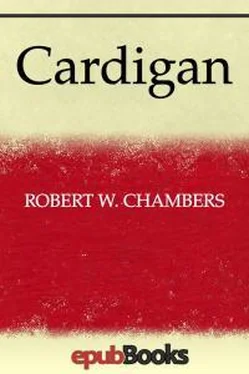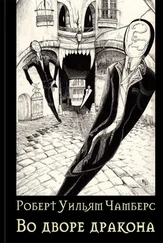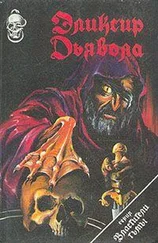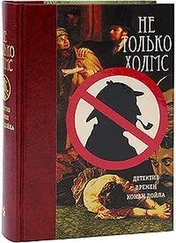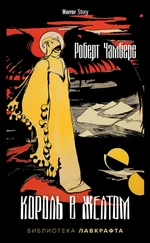Роберт Чамберс - Cardigan
Здесь есть возможность читать онлайн «Роберт Чамберс - Cardigan» весь текст электронной книги совершенно бесплатно (целиком полную версию без сокращений). В некоторых случаях можно слушать аудио, скачать через торрент в формате fb2 и присутствует краткое содержание. Год выпуска: 2014, Издательство: epubBooks Classics, Жанр: Историческая проза, на английском языке. Описание произведения, (предисловие) а так же отзывы посетителей доступны на портале библиотеки ЛибКат.
- Название:Cardigan
- Автор:
- Издательство:epubBooks Classics
- Жанр:
- Год:2014
- ISBN:нет данных
- Рейтинг книги:3 / 5. Голосов: 1
-
Избранное:Добавить в избранное
- Отзывы:
-
Ваша оценка:
- 60
- 1
- 2
- 3
- 4
- 5
Cardigan: краткое содержание, описание и аннотация
Предлагаем к чтению аннотацию, описание, краткое содержание или предисловие (зависит от того, что написал сам автор книги «Cardigan»). Если вы не нашли необходимую информацию о книге — напишите в комментариях, мы постараемся отыскать её.
Cardigan — читать онлайн бесплатно полную книгу (весь текст) целиком
Ниже представлен текст книги, разбитый по страницам. Система сохранения места последней прочитанной страницы, позволяет с удобством читать онлайн бесплатно книгу «Cardigan», без необходимости каждый раз заново искать на чём Вы остановились. Поставьте закладку, и сможете в любой момент перейти на страницу, на которой закончили чтение.
Интервал:
Закладка:
Mount displayed his broad knife coolly. The sunlight played over the blade of the murderous weapon; the crowd around us broke into a swelling roar.
Suddenly a soldier struck heavily at Mount with his hanger, but Mount sent the sword whirling with the broad, short blade in his hand.
"If you'll let this gentleman go, I'll give up," said Mount, sullenly. "Answer me, Billy Bishop!"
"Come, come," said Bishop, in a bantering voice, "we know all about this gentleman, Jack. Don't you worry; we'll take care he has a view of the Roxbury Cross–road as well as you!"
The taunt of the cross–roads gallows transformed Mount into a demon. He hurled his huge bulk at the solid mass of people; I followed, making what play I could with my small–sword, but in a moment I was down in the dust, blood pouring from my face, groping blindly for the enemies who were already clapping the irons on my other wrist.
Through the roar and tumult of frantic voices I was dragged into a stony street, crushed into the pit of a crowd, which hurried me on resistlessly. White, excited faces looked into mine; hundreds of clinched fists tossed above the dense masses on either side. Again and again I plunged at those who drove me, but they thrust me onward. Far ahead in the throng I saw the head and shoulders of Jack Mount overtopping them all.
The mob halted at a cross–street to allow a cavalcade of horsemen to pass. Above the heads of the people I could see the cavalry riding, sabres bared, the riders glancing curiously down at the rabble and its prisoners. A coach passed, escorted by dragoons; a gentleman looked out to seek the reason of the uproar. From his coach window his head leaned so close to me that I could have touched it. The gentleman was Walter Butler.
"A thief, sir," cried a bailiff; "taken by Bishop on the Mall. Would your lordship be pleased to see his comrade, the notorious Jack Mount?"
"Drive on," said Butler, impassively. Then the crowd began to hoot and jeer as the bailiffs pushed me forward once more through the dust of Cornhill up Queen Street.
And so, crushed by the awful disgrace which had fallen on me, writhing, resisting, dishevelled, I was forced into the Court–house on Queen Street, across the yard, and into the gates of the prison, which crashed behind me, drowning the roars of the people in my stunned ears.
Chapter XXIV
I was taken, in company with Jack Mount, on Monday morning, the 29th of October, 1774, without warrant or process, without a shadow of legal right, without the faintest justification or excuse, save that I had been seen conversing with Mount on the Mall, and had resisted the thief–taker Bishop and his filthy gang of bailiffs.
From the 29th of October until the 15th day of December, chained ankle to ankle, wrist to wrist, and wearing a steel collar from which chains hung and were riveted to the rings on my legs, I lay in that vile iron cage known as the "Pirates' Chapel," in company with Mount and eight sullen, cursing ruffians, taken in piracy off the Virginia capes by his Majesty's ship Hebe , consort of the frigate Asia .
During those six weeks not a moment passed in which I despaired, not an hour dragged out its chain of minutes but I believed it must be the hour for my delivery from this hideous injustice.
From the minute I had entered the "Chapel," the dull amazement which had fettered mind and body in a strange paralysis gave way to a deadly patience. My benumbed faculties grew clear; every sense became abnormally alert. Calmly I faced the terrible dilemma; I probed its consequences coolly; I understood that while Walter Butler held the Governor's ear, and while the Governor held the civil power at his own pleasure, and used it as whim or caprice moved him, I could neither hope for a hearing before a magistrate nor dare expect a trial by my countrymen. The soiled hand of England had polluted the ermine of the judges; the bayonets of England cleared the court–rooms; the mocking Governor brooded in Province House, watching the structure of civil rights crumble and collapse, while his judges, his sheriffs, his bailiffs, and his soldiers prowled through the débris of a structure which had been reared by my own people's martyrdom.
As for communication with the outside world, with friends, even with hostile relatives, or with the Governor himself, there was no possible chance. Our steel cage was set in the centre of a stone chamber, the barred windows of which opened on a bare stony parade, bounded on the east by Cornhill, on the west by Treamount Street, and on the south by School Street and the dead wall enclosing King's Chapel. There was not a soul to be seen in the prison or outside save the marine sentinels, the jailers, the warden of the prison, and the eight ruffians who were caged with us, among whom there was but a single Englishman.
Our cage was bedded with straw like a kennel; our food was brought us three times a day, in earthen bowls. A wooden spoon went with each bowl, otherwise the feed differed nothing from the feed of dogs.
Mount, in the beginning, had conducted like a madman, passing swiftly up and down his cage, pacing to and fro along the ranks of steel bars, blank fury glaring from his eyes, jaw hanging like the jowl of a committed panther.
All that first night he stalked the cage, brushing the bars with brow and thigh, and deep in his blue eyes there burned a terrible light, like the livid witch–fires which flare in haunted swamps.
At first the manacled ruffians who lay about us in the straw watched him doggedly, but as the night wore on and his pacing never ceased, they growled sullen protest. Then he slowly turned on them, baring his white teeth.
From that moment they gave him room and he ruled the cage as a silent, powerful beast rules, scarcely conscious of the cringing creatures who huddle around his legs, and whose presence cannot invade the solitude of his own fierce misery.
The light in the stone chamber was cool and gray—clear enough, yet never tinged with sunlight. Night brought thick, troubled shadows creeping around the single candle which dripped from an iron socket riveted to the wall. Then the shades of the jailers fell across the floor as the large lanthorn was set outside in the corridor, and all night long the shuffling tread of the sentry marked the dead march of time.
For three days, now, I had not touched the broth which was set on the straw beside me; I do not know that I should have made the effort to eat at all, except for an accident. It happened in this manner: one day, towards the middle of December, I had been lying on my belly, trying to think out something of that future which I had not yet despaired of. Musing there, nose buried in my arms, I lay almost on the verge of slumber, yet with one eye on the corridor beyond, when I saw distinctly a woman's face peer through the thick grating which separated the corridor from our stone chamber.
After a while the face disappeared; I lay still a moment, then touched Mount's arm.
He turned his haggard face to me.
"Bishop's daughter is in the corridor," I whispered.
"Where?" asked Mount, vacantly.
"Out there behind the grating. She may do something for—for you. If she should, I think we had better try to eat."
"Yes," he said, "we must eat." And he turned with a snarl on one of the caged wretches behind us who for days had been battening on the food that neither Jack nor I touched.
The man was in the act of dragging Mount's bowl and spoon towards his own nest in the straw, but he dropped the food and shrank back as Mount seized it with an oath.
I also secured my own bowl of bread and broth, and, together, we ate as animals eat, eying the others malevolently and askance.
That night Mount lay awake, watching the grating. At dawn I awoke to watch, and Mount rolled himself up into a ball of buckskin and slept the first peaceful sleep which had come to him since his taking.
Читать дальшеИнтервал:
Закладка:
Похожие книги на «Cardigan»
Представляем Вашему вниманию похожие книги на «Cardigan» списком для выбора. Мы отобрали схожую по названию и смыслу литературу в надежде предоставить читателям больше вариантов отыскать новые, интересные, ещё непрочитанные произведения.
Обсуждение, отзывы о книге «Cardigan» и просто собственные мнения читателей. Оставьте ваши комментарии, напишите, что Вы думаете о произведении, его смысле или главных героях. Укажите что конкретно понравилось, а что нет, и почему Вы так считаете.
